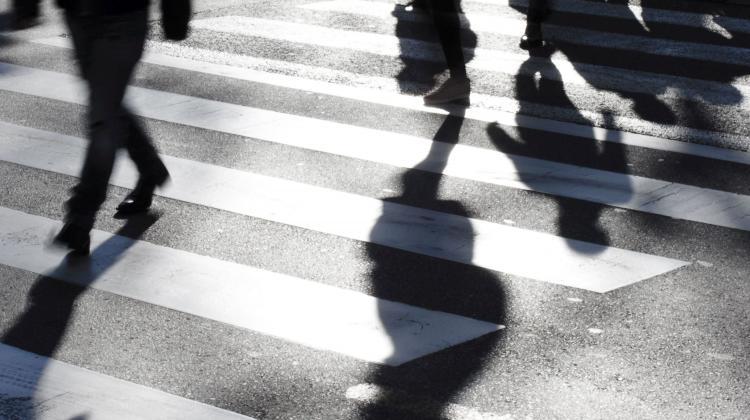Lonesome tonight? Sense of loneliness changes physiological responses to social stimuli, say scientists
 Credit: Fotolia
Credit: Fotolia
Decreased heart rate variability can be observed in people who feel loneliness, show researchers from the Polish Academy of Sciences. This means that even experimentally-induced loneliness can weaken certain physiological reactions and have serious health consequences.
During the Covid-19 pandemic, loneliness is mentioned among the most serious threats to mental health. Its negative impact is not limited to our well-being, it can also affect the condition of the body. Previous population studies have shown that a sense of loneliness is associated with an increased risk of earlier death, comparable to smoking 15 cigarettes per day, and with a higher risk of death than obesity or hypertension.
Research indicates that many different factors related to the social world affect our health, says Dr. Łukasz Okruszek from the Institute of Psychology of the Polish Academy of Sciences. In addition to a sense of loneliness, these factors also include social gradient - the socioeconomic position itself and our perception of where we are on the so-called social ladder.
Dr. Okruszek said: “Physical, psychological and social worlds are surprisingly close. In many different, social environment ways translates into what is happening in our brain, but also in our body. We continue to discover trajectories connecting our social and physical worlds, brain activity, immune system.”
Importantly, reduced heart rate variability (HRV) can be observed in lonely people, the Polish Academy of Sciences reports. HRV is a positive mechanism for our body, associated with the regulation of the body in response to unknown and potentially threatening information appearing in the environment. A higher level of heart rate variability allows the body to react more efficiently to the negative signals related precisely to social relations or social positions. Reduced HRV is a risk factor for cardiovascular disease.
Reduced ability of lonely people to adequately respond to social information may therefore be associated with serious health consequences.
At the same time, still little is known about the impact of a sense of loneliness on regulating the body's response to social stimuli. The study on this subject was conducted by the Neural Science Lab team from the Institute of Psychology PAS in cooperation with Professor Julian F. Thayer from the University of California, Irvine, a world-class expert specialising in the dependence between the functioning of the nervous system and mental and physical health.
Young adults (18-35 years) characterized by a medium sense of loneliness were invited to participate in the study. The choice of the age group was dictated by the fact that this group is recognized in contemporary literature as being most at risk of loneliness.
A total of 127 study participants were invited to the Institute of Psychology twice. During the first meeting, they were asked to complete personality assessment questionnaires. During the second meeting, they were asked to assess the faces with neutral and angry expressions. In addition, during the task, the heart of each participant was monitored with an electrocardiograph (ECG). Importantly, before the task, the participants were informed that the would receive 'feedback' on their social functioning, prepared on the basis of test results collected as part of the first meeting. This information started with a real description of whether the participant was an extrovert or introvert. Half of the participants (selected randomly) received an additional comment that the obtained profile indicated that their current relationships would end and they should expect a lonely life. In turn, the other half of the participants received information that on the basis of the collected results it was possible to predict that their lives would be filled with satisfactory relationships.
In line with the study hypotheses, in the group which received information on satisfactory relationships and considered it reliable, researchers observed a pattern of physiological activity characteristic of the efficient regulation of the body in response to threatening information. In this group, heart rate variability was higher during rest than during the task, it remained at a reduced level throughout the length of the task to return to the starting level after its completion.
In turn, the group that accepted the 'lonely future' information reacted differently; the above-mentioned reaction pattern was observed and the level of heart rate variability remained constant during the entire procedure.
The researchers said: “The results we have obtained are one of the first evidence that the sense of loneliness has a directly effect on the body's ability to regulate in response to social information. Even short-term, experimentally induced loneliness can lead to a weakened adaptive physiological reaction that characterizes healthy people.”
Dr. Okruszek acknowledges that for now it is difficult to clearly indicate how the above results can be generalised for to the situation of social isolation associated with the pandemic, and to what extent this situation will have a lasting impact on physiological indicators, such as the heart rate variability. Previous studies, for example those involving people with depressive or anxiety disorders, do not provide clear results in this area.
He added: “But it is indicated that, for example, in people with panic disorder, a long-term cognitive-behavioural therapy allows to achieve a reduction of symptoms accompanied by an HRV increase.”
In his opinion, these results are of particular importance during the Covid-19 pandemic, when young people are particularly exposed to loneliness. As part of the 'Loneliness Project' (www.projekt-samotnosc.pl) researchers at the Institute of Psychology conducted further research with the use of functional neuroimaging methods that will compare the above changes to the activity of the so-called 'social brain' network.
PAP - Science in Poland
ekr/ zan/ kap/
tr. RL
Przed dodaniem komentarza prosimy o zapoznanie z Regulaminem forum serwisu Nauka w Polsce.
















